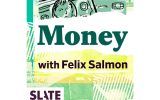NFTs, also known as nonfungible tokens, are a bit of a tech fad at the moment, with plenty of different opinions about whether they are here to stay. But for now, they are continuing their push into the mainstream. NFTs are digital assets, like JPEGs or tweets, that can be bought and sold on a marketplace.
A way to make something that traditionally could just be copied and shared online, rare — and therefore, to some, valuable.
When you purchase one, you get a digital contract that is stored on blockchain, a digital cybercurrency ledger. Meaning that if I theoretically buy an NFT of the “Mona Lisa,” I can point to code that says I own it.
And as transaction prices for these items climb, so does the risk of scams.
Corin Faife is a senior reporter at The Verge who’s been following this trend. He said he’s heard many stories from people who were defrauded on the popular gamer messaging platform Discord. The following is an edited transcript of our conversation.
Corin Faife: With NFT projects, an important part of selling the NFT is to develop a community, to develop a bit of hype around it, and just get people talking about it. So in that sense, Discord has been a very suitable platform for doing that. But it has also led to some problems because it wasn’t originally designed as being a secure communication platform. It wasn’t something where they expected people to be making high-value transactions, so because of that,…













